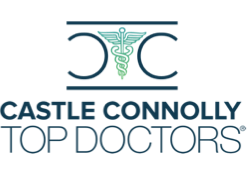Regenerative cell therapy is a major next step in medical research, with the potential to effectively treat the most complex diseases – including various forms of cancer. Researchers studying regenerative cell therapy look at both how stem cells may be used to replace, repair, reprogram or renew your diseased cells, and at how reprogrammed stem cells may be turned into specialized cells that can repair or regenerate cells. It has the potential to change the outcomes for patients who are left with little time and very few answers.
In regenerative cell therapy, function is restored in damaged or destroyed tissues, rather than producing a new organ. This can be done either by intravenously injecting cells into damaged tissue or by inducing self-repair by recruiting from the patient’s own highly functioning tissues.
There are a few different types of cells with various effects used in regenerative cell therapy, including:
- Induced pluripotent stem cells (iPSCs) – Cells that are taken from adult tissue and are genetically altered to behave like an embryonic cell.
- Embryonic stem cells (ESCs) – Cells that are taken from the inner mass of a blastocyst and have the potential to become any kind of tissue within the body.
- Fetal/adult stem cells – Tissue-specific cells that can develop into cell types of the tissue/organ in which they reside. A primary example of this is bone marrow or liver.
With regenerative cell therapy, researchers hope to provide patients with an effective alternative treatment that will repair the damage left by disease, cancer, or even spinal cord injury. According to the CDC, cardiovascular diseases and cancers are the top two causes of death, with each killing half a million Americans each year. Regenerative medicine has the potential to drastically lower this number and give patients their lives back. With time, it may also provide a breakthrough in combating other deadly diseases, including diabetes, prostate cancer, and other spinal issues.
Eventually, doctors may better understand how these diseases work by using a treatment that has the potential to change the face of medicine.
What do you think about regenerative cell therapy? Do you think it has potential in the near future or will we have to wait years to see real change happen? Share your thoughts with us on Facebook.









